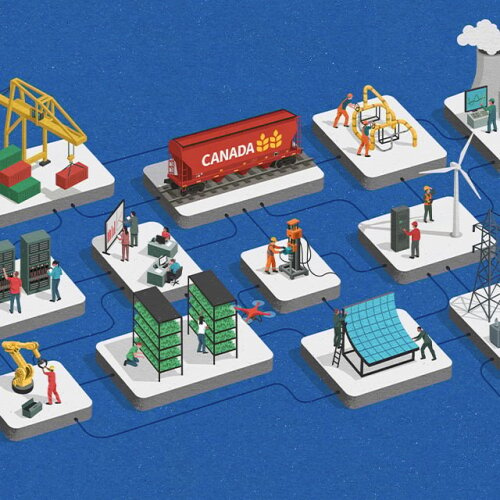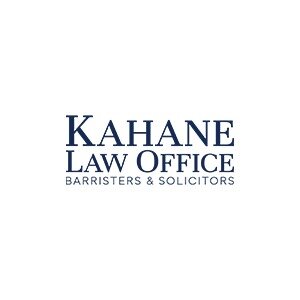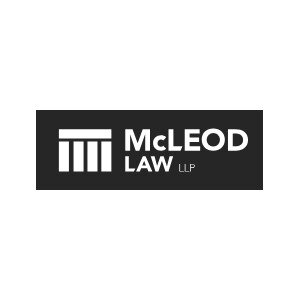Best Climate Change Law Lawyers in Calgary
Share your needs with us, get contacted by law firms.
Free. Takes 2 min.
List of the best lawyers in Calgary, Canada
About Climate Change Law in Calgary, Canada
Climate Change Law in Calgary refers to the body of legal rules, regulations, policies, and guidelines aimed at reducing greenhouse gas emissions, promoting environmental sustainability, and managing the impacts of climate change within the city and surrounding areas. This area of law spans federal, provincial, and municipal levels, addressing issues such as emissions regulations, renewable energy, building standards, resource management, and corporate environmental responsibility. Calgary, as a major hub for energy production in Canada, faces unique legal challenges and opportunities related to balancing economic activity with climate change mitigation and adaptation efforts.
Why You May Need a Lawyer
You may require legal advice or representation in Climate Change Law for several reasons, including:
- Complying with or challenging new environmental regulations affecting your business or property
- Understanding obligations regarding greenhouse gas emissions reporting and reduction
- Dealing with government enforcement actions, fines, or investigations
- Participating in environmental assessments or public consultations
- Pursuing litigation related to climate change impacts, such as flooding or wildfires
- Drafting or reviewing commercial contracts to incorporate climate risk clauses
- Seeking approval for renewable energy projects or green building developments
- Accessing government funding, grants, or carbon credits for sustainability projects
- Addressing Indigenous consultation and duty-to-consult requirements in project development
- Protecting your rights or business interests amid changing climate policies
Local Laws Overview
Climate Change Law in Calgary is shaped by a combination of federal, Alberta provincial, and municipal regulations:
- Federal: The Canadian government sets nationwide emissions standards, such as the carbon pricing system under the Greenhouse Gas Pollution Pricing Act, and regulates large industrial emitters through the Output-Based Pricing System.
- Alberta Provincial: Alberta’s TIER Regulation (Technology Innovation and Emissions Reduction) applies to industrial emitters and includes specific reporting and reduction requirements. Additional provincial regulations address air quality, water use, and land management with implications for climate change.
- City of Calgary: The city has adopted a Climate Resilience Strategy focused on emissions reductions and adaptation. Key municipal bylaws affect building codes, energy use, waste management, and flood mitigation efforts.
Compliance and strategy can vary depending on your sector, whether you are operating in construction, energy, real estate, or another industry.
Frequently Asked Questions
What is climate change law?
Climate change law is a collection of legal rules, regulations, and procedures designed to prevent or mitigate the causes of climate change and help communities adapt to its effects. It includes environmental protection statutes, emissions standards, energy regulations, and related municipal policies.
How does carbon pricing work in Calgary?
Carbon pricing in Calgary is governed by federal and provincial regulations that assign a cost to emitting greenhouse gases. This can take the form of a carbon tax or an emissions trading system. Businesses must track their emissions and either pay a fee or obtain credits to offset them.
Who enforces climate change laws in Calgary?
The enforcement of climate change laws involves several bodies, including Environment and Climate Change Canada at the federal level, Alberta Environment and Protected Areas at the provincial level, and the City of Calgary’s own departments for local bylaws and policies.
Are there incentives for businesses to reduce emissions?
Yes. Various programs provide grants, tax breaks, or carbon credits to businesses that reduce their emissions, adopt renewable energy, or invest in energy efficient infrastructure. Eligibility and program details may vary.
Do residential property owners have climate-related obligations?
Most obligations apply to businesses and developers, but homeowners may be subject to energy efficiency rules for new builds or renovations, waste management bylaws, and flood risk mitigation requirements depending on the area.
Can climate change issues affect real estate transactions?
Yes. Flood zones, wildfire risks, and changing bylaws for energy efficiency can all influence real estate values, development approvals, and insurance premiums. Legal advice is strongly recommended during such transactions.
What should I do if my business is accused of violating climate change regulations?
Contact a lawyer experienced in environmental or climate change law immediately. They can help you understand the allegations, respond to enforcement actions, and represent you in negotiations or hearings.
Are renewable energy projects regulated differently?
Renewable energy projects must comply with specific permitting, land use, and environmental assessment requirements. There may also be unique funding or incentive programs available to support these projects.
How do Indigenous rights intersect with climate change law?
Developments subject to climate change regulations often require consultation with Indigenous communities, especially if their rights or territories are affected. Legal counsel can help ensure compliance with all duty-to-consult obligations.
Where can I access public information on climate plans and policies?
Government websites, city council reports, and environmental agency publications are good starting points. Many organizations also host public engagement sessions and provide updates on proposed climate-related laws and policies.
Additional Resources
For more information or assistance, consider these resources and organizations:
- Alberta Environment and Protected Areas
- Environment and Climate Change Canada
- City of Calgary Climate and Environment Department
- Alberta Energy Regulator
- Canadian Bar Association - Environmental, Energy and Resources Law Section
- Calgary Climate Hub
- University of Calgary Faculty of Law - Environmental Law Clinic
- Environmental Law Centre (Alberta)
Next Steps
If you have legal concerns related to climate change in Calgary, gather any documentation related to your issue, such as permits, correspondence, or inspection reports. Schedule a consultation with a lawyer experienced in climate change or environmental law to assess your situation and develop a strategy tailored to your needs. Staying informed about new laws, participating in public consultations, and seeking timely legal advice can help you stay compliant and protect your interests as regulations continue to evolve.
Lawzana helps you find the best lawyers and law firms in Calgary through a curated and pre-screened list of qualified legal professionals. Our platform offers rankings and detailed profiles of attorneys and law firms, allowing you to compare based on practice areas, including Climate Change Law, experience, and client feedback.
Each profile includes a description of the firm's areas of practice, client reviews, team members and partners, year of establishment, spoken languages, office locations, contact information, social media presence, and any published articles or resources. Most firms on our platform speak English and are experienced in both local and international legal matters.
Get a quote from top-rated law firms in Calgary, Canada — quickly, securely, and without unnecessary hassle.
Disclaimer:
The information provided on this page is for general informational purposes only and does not constitute legal advice. While we strive to ensure the accuracy and relevance of the content, legal information may change over time, and interpretations of the law can vary. You should always consult with a qualified legal professional for advice specific to your situation.
We disclaim all liability for actions taken or not taken based on the content of this page. If you believe any information is incorrect or outdated, please contact us, and we will review and update it where appropriate.
















